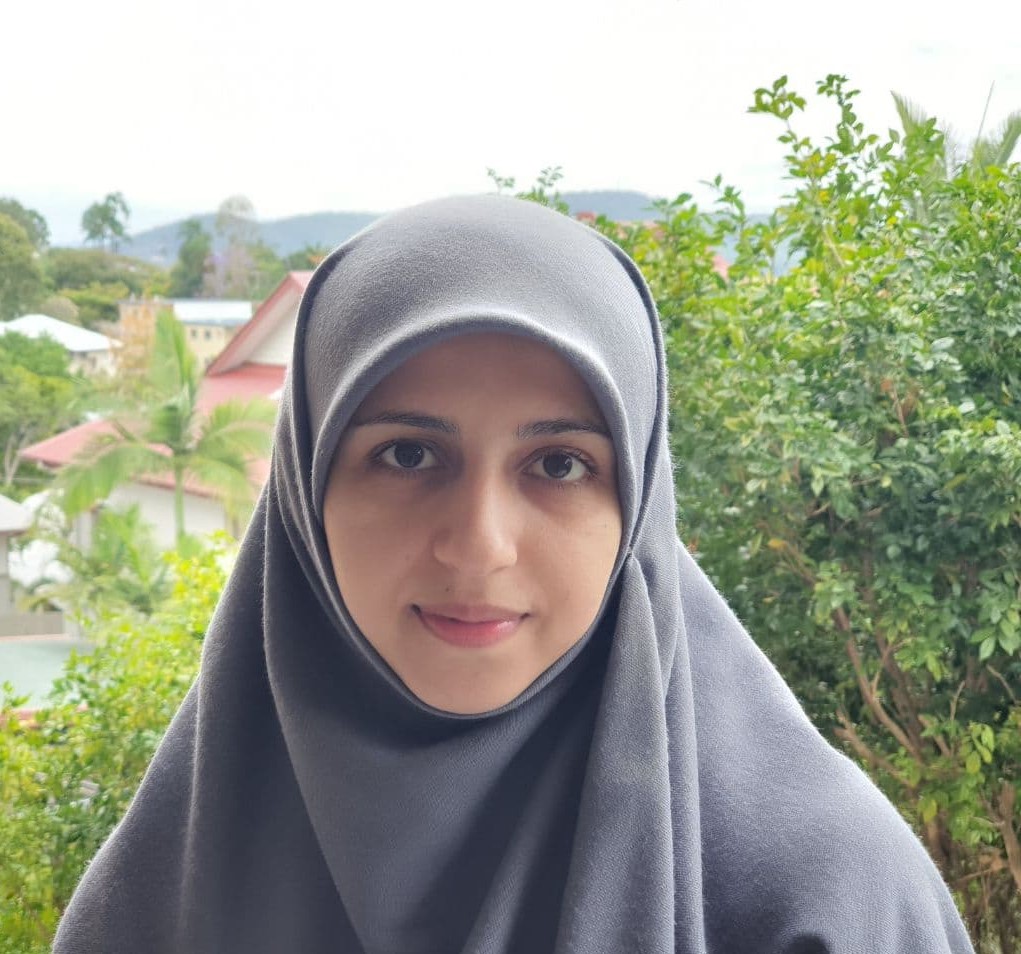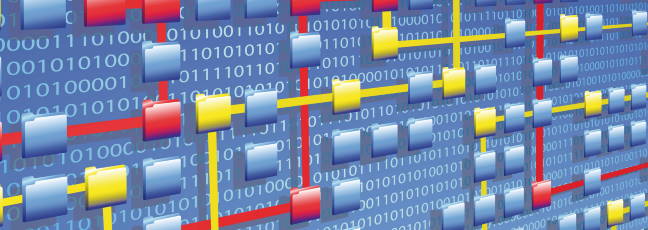Academic stories: Sareh Sadeghianasl
academic stories challenge and studyA chat with Sareh Sadeghianasl
Sareh Sadeghianasl is a lecturer at QUT down under. In 2023, she received the Best PhD Dissertation Runner-up award at ICPM in Rome, Italy. Time for an interview with her for the process mining newsletter!
Sareh, tell us a bit about yourself and your research institute!
 Hi, my name is Sareh Sadeghianasl. I am a lecturer at the School of Information Systems in the Queensland University of Technology (QUT), Brisbane, Australia. I have teaching expertise and experience in business process modelling, technologies, and modern databases. My research areas are process data quality management, visual analytics, and object-centric process mining. I have worked with Australian datasets from healthcare, mining, and manufacturing domains. I regularly collaborate with Arthur ter Hofstede and Moe Wynn as part of the Process Science Group at QUT. QUT’s Process Science group is known internationally for its research contributions to process automation, process mining and process data quality management.
Hi, my name is Sareh Sadeghianasl. I am a lecturer at the School of Information Systems in the Queensland University of Technology (QUT), Brisbane, Australia. I have teaching expertise and experience in business process modelling, technologies, and modern databases. My research areas are process data quality management, visual analytics, and object-centric process mining. I have worked with Australian datasets from healthcare, mining, and manufacturing domains. I regularly collaborate with Arthur ter Hofstede and Moe Wynn as part of the Process Science Group at QUT. QUT’s Process Science group is known internationally for its research contributions to process automation, process mining and process data quality management.
In 2022, I completed my PhD in the Process Science Group under the supervision of Arthur, Moe, and Selen Türkay. I developed novel techniques using gamification, visual analytics, and crowdsourcing to enhance event log quality. To automatically discover reliable and accurate process models for event logs, we must rely on having an accurate representation of tasks in an event log in the form of high-quality activity labels. In reality, this is not the case with distorted, polluted, and synonymous data quality patterns common in event logs. During my PhD research, I focused on activity label quality. In the first instance, I developed a label-similarity approach based on the context of tasks (e.g., preceding task, resource, and data involved), but better results can be obtained by seeking input from domain experts as a deep insight into the domain involved helps with understanding what the intended meaning is of the labels. However, while they are eminently suited to fix imperfect labels, it is hard to engage them as repair can be time-consuming and tedious. In my PhD, I proposed to use gamification and visual analytics techniques to address the challenge of domain expert engagement with activity label quality improvement. Three gamified applications were developed as part of the Quality Guardian project. I was honoured to receive the Runner Up Award for Best Process Mining PhD Thesis at ICPM 2023.
When and why did you first come up with the idea to do research in process mining?
I hold a Bachelor and a Master of Computer Science from the Ferdowsi University of Mashhad, the 3rd ranked university in Iran. I started my research in process mining when I was a Master student back in 2014, under the supervision of Mohsen Kahani. I got to know about the field through my colleague who was also new to the field and was very excited about it. I found process mining resonating well with my interests in programming, mathematics, and statistics. It kind of has it all! So, in my Master’s thesis I designed and implemented a method to assess the similarity of business processes based on a domain ontology extracted from event log data.
To pursue my passion, I applied for a PhD in the Process Science Group at QUT, which was known for their work in process mining and data quality. I had read many papers from the group during my Master’s program and had always dreamed of joining it. I became more and more interested in the field as I went through my PhD journey, where I looked at event log quality and presented a number of approaches to improve activity labels. Since 2018, I have been able to contribute to several research initiatives in process mining and data quality in close collaboration with other members of the group.
What is your favourite “Eureka!” moment you had while conducting your research?
My favourite “Eureka” moment was when I came across the idea of using gamification in process mining through my supervisor Arthur. This was the first time that I thought of human and cognitive aspects of data preparation for process mining. I have always heard that data preparation is the most time consuming and tiresome task, not only of process mining but also of data mining projects. I found it really novel and practical to go through this boring phase by playing a game, and ideally, this can be empowered by incorporating some automatic steps that can learn from and build upon user behaviour.
What are the investigations in process mining your research has been mostly devoted to, and what do you see as a major challenging and attracting factor in process mining?
Generally, my research revolves around process-data quality management, visual analytics, and object-centric process mining. I have designed and implemented several techniques in these areas. Let me list some of the projects that I have been involved in.
First, the Quality Guardian is a family of gamified systems that incorporate visual analytics techniques to engage users to detect and repair synonymous activity labels. There are three main applications in this family plus an automatic approach to detect candidates of synonymous labels as a preparation step for gamified solutions. All these applications are available in my GitHub repository.
Second, I am excited to be leading the development of an open-source framework for data quality management of process event logs (PraeclarusPDQ), having taken over this role from Michael Adams. This framework will help process mining researchers to contribute their detection and repair solutions for process data quality management and make them available to the public for feedback. The PraeclarusPDQ initiative involves international collaboration with UNIST in South Korea and the University of Bayreuth in Germany. If you have any data preprocessing challenges or have any tools and techniques you want to incorporate into the framework, feel free to reach out to me!
Third, I have led the development of a new algebra operator, Generalised GroupBy, for repairing event log imperfection patterns together with Arthur ter Hofstede, Alistair Barros, Robert Andrews, and Remco Dijkman. This work includes the introduction of this operator, its properties, its implementation in the PraeclarusPDQ framework, and examples of how it can be used for repair.
Fourth, with the emergence of the object-centric notion of process event logs, I am now looking at the data quality aspects of this new notion. I have led the design of a set of eight imperfection patterns for object-centric event logs together with Arthur ter Hofstede, Moe Wynn, and Wil van der Aalst. These patterns allow the identification of well-suited detection techniques and remedies for specific root causes of data quality issues. Working with many real-life Australian data sets, I can see a lot of opportunities to undertake object-centric process mining as there are inherently multiple objects interacting with each other.
Finally, my research is informed by various real-life applications. I have been involved in several process mining industry projects including with an Australian manufacturing company, an Australian hospital, and an Australian health and safety organisation. I collaborated on the development of digital health data imperfection patterns, which provide insights into quality problems of digital health data, their impact, their root causes, and how these can be detected. I used my technical skills to assess the quality of real-life data sets and to analyse the root causes of data quality problems. I also showcased our work on the development of a framework for data quality root cause analysis in healthcare at the Princess Alexandra Hospital Health Symposium 2023. The work was well-received by healthcare stakeholders, and I won the Early Career Best Laboratory / Basic Science Research Presentation Award.
How do you see process mining in the future?
I believe that the new standardisation of event logs in the object-centric format will steer the direction of future research in process mining in the next couple of years. A new standard means that new techniques need to be developed in various process mining areas, including discovery, conformance, performance, prediction, and improvement. My main area of interest, process-data quality, will also be affected by the object-centric notion in event logs. There will be new, and probably more complex, data quality issues as a result of extending the one-case notion of event logs to the multi-case notion, where there are n:m relationships between objects and/or events - an area that I am keen to explore further in the future.
I also believe that process mining is going to be more integrated with process-aware information systems and other business intelligence. Data for process mining will come from multiple sources with a high volume and velocity. As process mining becomes more of a real-time capability for organisations, I can see that data correlation and quality management also need to be undertaken in a more systematic and automated manner.
Furthermore, I think data visualisation for process mining needs more attention in the future. Currently, the main focus of most process mining techniques is on their effectiveness and efficiency; however, as the human-in-the-loop paradigm of process mining grows, more advanced visual analytics become paramount to support effective user engagement.
- ICPM 2024: Some reflections
- ICPM 2024: Program in review
- End-user’s corner: Uniper’s Journey in process mining and intelligence to improve the energy business
- Academic stories: Sareh Sadeghianasl
- Call for papers: AI-Enhanced Business Process Management
- Call for papers: Novel Applications of Blockchain for Information Systems and Business Process Management
- This article has been updated on January 15 2025, 19:10.
- A chat with Sareh Sadeghianasl

